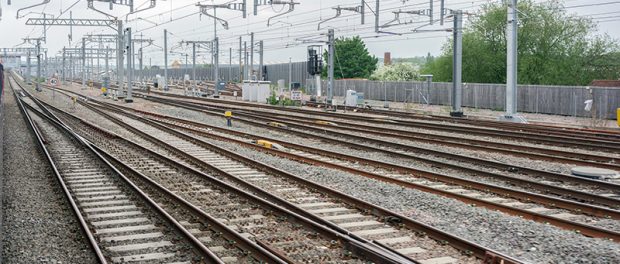Government needs to kick-start a “rolling programme” of rail electrification, say business, passenger, freight, and community groups

Representative bodies covering businesses, passengers, freight, and community groups have today published an open letter to Transport Secretary Grant Shapps, calling for him to kick-start an ambitious “rolling programme” of rail electrification, if the Government wants to deliver on its aim of decarbonising UK rail by 2040.
The representative bodies, which represent thousands of businesses and organisations, have urged the Government to end the ‘stop-start’ nature of past electrification schemes and to introduce a ring-fenced “rolling programme” fund that allows the rail industry to extend electrified track over several years. They have called on the Government to act before current electrification schemes are completed after which – without other schemes to move on to – many skills and expertise will be lost.
Darren Shirley, Chief Executive of Campaign for Better Transport, said:
“The scale and pace of rail electrification must increase if legally binding carbon emission targets are to be met and air quality improved in towns and cities. Rail is currently the greenest major form of transport, but will cede that leading position undoing wider efforts to reduce carbon emissions unless the Government commits to a rolling programme of electrification. The Government should introduce a ring-fenced fund in the upcoming Budget with a longer-term settlement in the Spending Review so that communities can reap the benefits of cleaner train services.”
Noel Dolphin, Campaign to Electrify Britain’s Railway (CEBR), said:
“In order to deliver a decarbonised rail network, a significant amount of electrification is required. Electrification also provides benefits of increased capacity, decreased journey times and quieter, cleaner trains. A rolling programme of electrification is the most efficient and cost-effective way to deliver electrification.”
Alasdair Reisner, Chief executive, CECA, said:
“It is essential that the UK moves swiftly to meet its carbon reduction commitments. Our transport network provides one of the biggest areas of opportunity in this regard, and rail electrification is an essential part of this. We support the development of a credible programme to cut the carbon cost of rail journeys nationwide”
Electrical Contractors Association (ECA) Energy Advisor Luke Osborne said:
“The UK’s railway system, particularly in the North, is in desperate need of investment and decarbonisation to bring it into the 21st Century. Electrification of the railways is fundamental to getting zero carbon done.”
Justin Moss and Mike Hulme, Co-Chairs of Northern Rail Industry Leaders (NRIL) said:
“Decarbonising our rail network is important for the whole UK and in the North there are a number of lines that would benefit from electrification, including the Trans Pennine Route. We’d urge the Government to restart the electrification programme, and get on with decarbonising rail lines across the country.”
Maggie Simpson, Director General of the Rail Freight Group, said:
“Rail freight is already the environmental choice for freight movement, but we cannot be complacent. Electrification is the only proven technology to decarbonise rail freight, and Government must start a rolling programme to electrify key routes, supporting private sector investment in new locomotives, and ensuring a low carbon future solution for freight customers and wider society.”
Elaine Clark, CEO of Rail Forum Midlands said:
“Government commitment to a long term rolling programme of electrification is essential if we are to meet the challenges set for decarbonising the railway and contribute to wider UK emissions and air quality targets. It’s also the only way we can retain and develop these essential skills in the industry thereby driving the reduction in delivery costs that have been identified as possible.“
Darren Caplan, Chief Executive of the Railway Industry Association (RIA), said:
“Kick-starting a programme of electrification on intensively-used rail is essential if the Government is serious about delivering on its goal to decarbonise UK rail by 2040. Not only are electrified trains key to decarbonisation, electrified tracks are more reliable, reduce costs in the long term and shorten journey times too. Research conducted by RIA has shown that the costs of electrification schemes can be lowered by up to 50% compared to some past projects, particularly if supported by a “rolling programme” of work to avoid the expensive and inefficient ‘feast and famine’ approach to investment in the past. So we urge the Transport Secretary to make this a top priority as the new Government develops its Infrastructure Strategy in the months ahead.”
